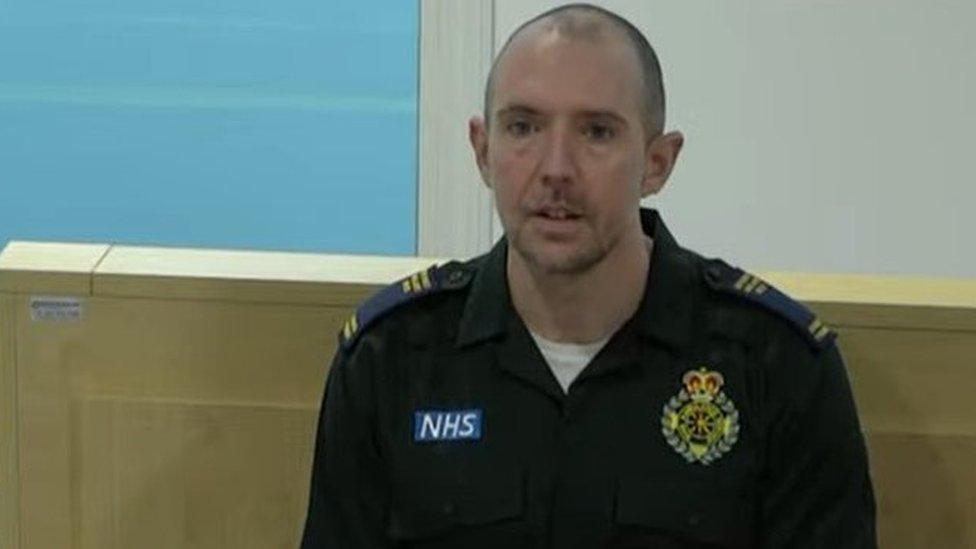Manchester Arena Inquiry: 'Only seven ambulances free' after bombing
- Published
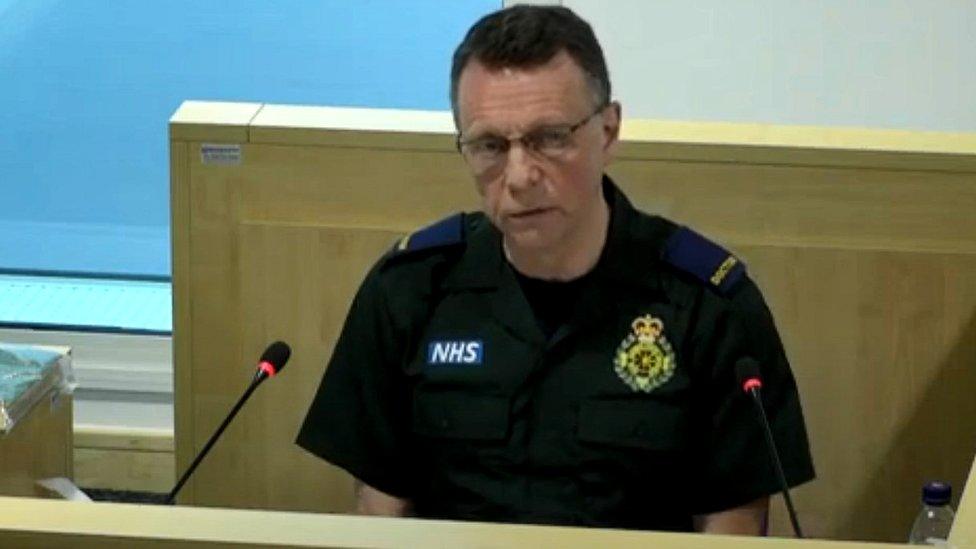
Dr Edward Tunn went straight to the bombing scene with his son who is a paramedic
Only seven ambulances were free to treat people when the Manchester Arena explosion took place, the public inquiry into the attack has heard.
Dr Edward Tunn, associate medical director for North West Ambulance Service (NWAS), said there was a delay in getting enough crews to the scene.
Seventy-six ambulances were responding elsewhere in Greater Manchester on an "already a busy night", he said.
Some critically ill casualties waited up to three hours to get to hospital.
Twenty-two people were killed and hundreds more were injured when suicide bomber Salman Abedi detonated his device at the end of an Ariana Grande concert on 22 May 2017.
Outlining the logistical problems, Dr Tunn told the inquiry: "We don't have a pool of ambulances waiting. They have already got patients.
"Three hours is a very long time and for an individual patient is not something I would want. It's logistics essentially."
Pain relief delay
Dr Tunn said by about 23:15 BST, nearly 45 minutes after the explosion, they had 25 ambulances available.
"I was astonished at the number of ambulances that were made available," he added.
The inquiry was told 59 patients were taken from the arena to hospital by ambulance.
Dr Dunn also apologised for some people being left for "quite a period of time to receive pain relief".
He told the hearing there was not a problem with supply but the issue was "certainly something we'd like to improve".

Twenty-two people died in the attack on 22 May 2017
The inquiry heard Dr Tunn self-deployed when he heard about the explosion and drove from his home in Merseyside to Manchester along with his son Joe, a specialist paramedic with the Hazardous Area Response Team (HART).
Dr Tunn said they felt it was safe enough to go straight to the arena despite being told by ambulance control there had been "confirmed gunfire" and to head to a nearby fire station.
He said they thought it would "shorten things" if they went to the arena.
Dr Tunn said he took on a number of roles in the bombing aftermath - including "medical advisor", "forward doctor", and supporting "loading" casualties on to ambulances.
He said he was not aware Greater Manchester Police had declared "Operation Plato", a pre-planned emergency response to deal with a terrorist firearms attack which restricts the areas where responders can work.
"Fortunately on the night I didn't know enough to stop me getting on with casualty care," he said, adding his information was that the area was "safe enough" for his colleagues.
The inquiry continues.

Why not follow BBC North West on Facebook, external, Twitter, external and Instagram, external? You can also send story ideas to northwest.newsonline@bbc.co.uk
- Published24 March 2021
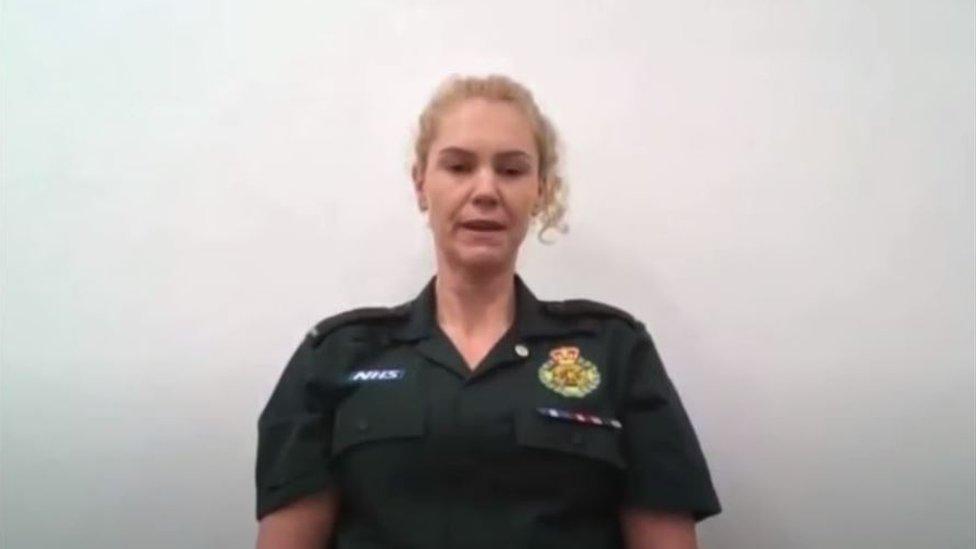
- Published23 March 2021
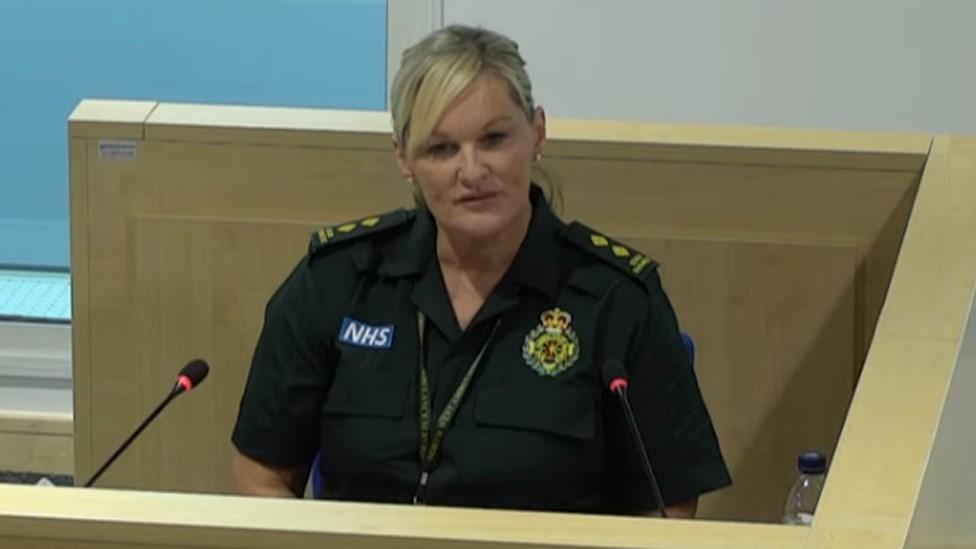
- Published22 March 2021
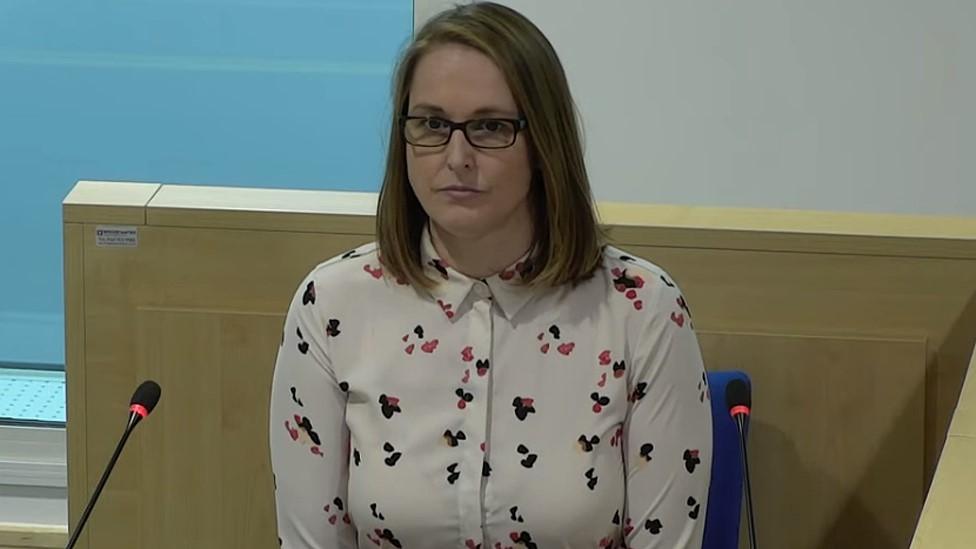
- Published19 March 2021
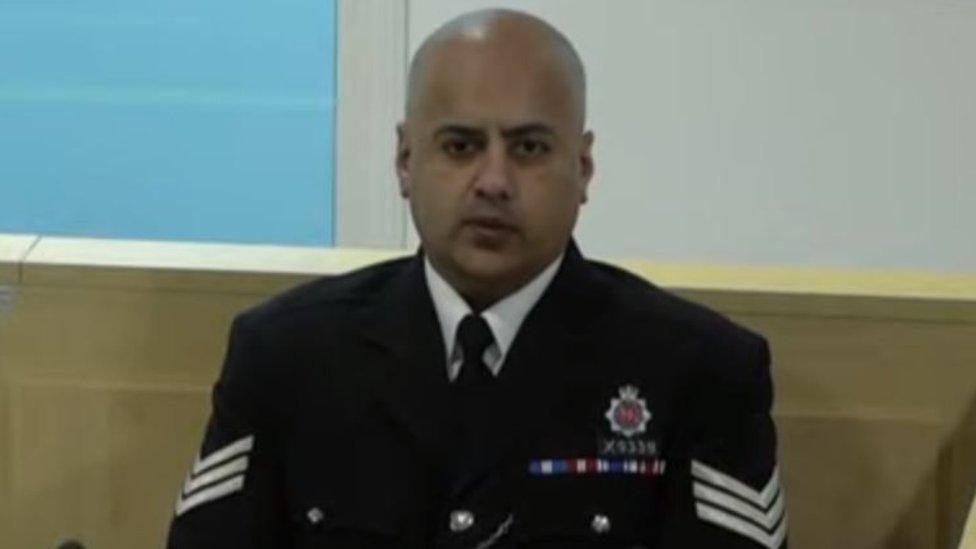
- Published18 March 2021
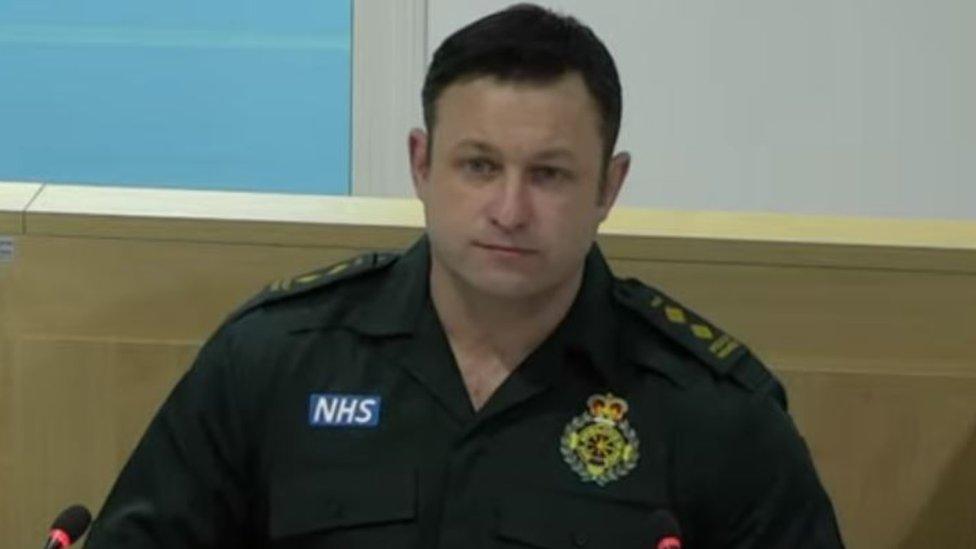
- Published17 March 2021
